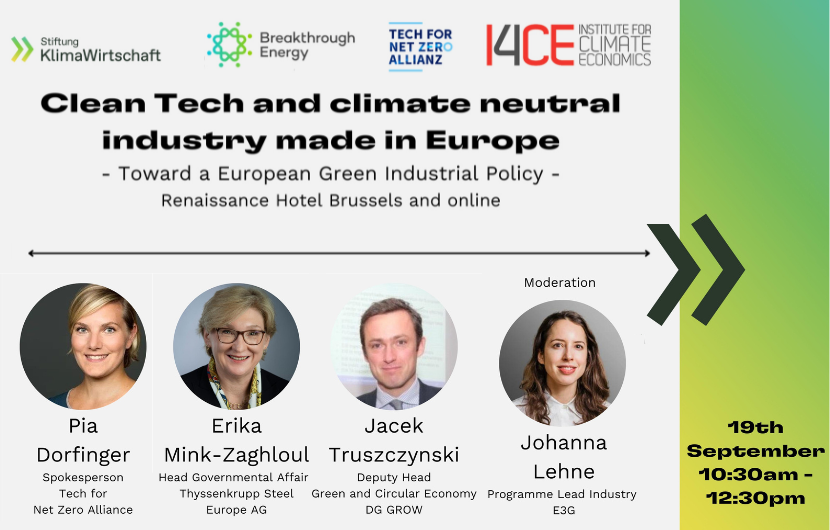Clean tech and climate neutral industry made in Europe
Webinars - By : Thomas PELLERIN-CARLINToward a European Green Industrial Policy

The race to climate neutrality is in full swing. The leading economic blocs across the globe implement wide ranging industrial policies to support and scale cleantech industries having understood their importance to create quality jobs, ensure prosperity and guarantee a higher degree of technological sovereignty.
- Are the Green Deal Industrial Plan, the Net-Zero Industry Act and the Strategic Technologies for Europe Platform sufficient to keep the EU in the global cleantech race?
- How can a European green industrial policy combine political will, pragmatic thinking, and readiness for deep-reaching reforms?
A coherent European Union-wide answer to the industrial transformation challenge is essential to truly harness the potential of the European economy and ensure that investments are made where they are the most efficient – not where national subsidies are the most generous.
Date: September 19th, 2023
Time: 10:30 PM-12:30 PM
Location : Renaissance Brussels Hotel, Rue du Parnasse 19, 1050 Bruxelles, Belgium;
Format: Hybrid
Partners: Stiftung KlimaWirtschaft — German CEO Alliance for Climate and Economy, Tech for Net Zero Alliance, the Institute for Climate Economics (I4CE) and Breakthrough Energy
Welcoming words: Sabine Nallinger, Managing Director Stiftung KlimaWirtschaft Expert Input: David Saha, Director, Deloitte; Thomas Pellerin-Carlin, Director, EU Programme, I4CE. Panel: Jacek Truszczynski, Deputy Head of Green and Circular Economy, département for growth (DG GROW); Erika Mink-Zaghloul, Head of Governmental Affairs, Thyssenkrupp Steel Europe AG; Pia Dorfinger, Spokesperson, Tech for Net Zero Alliance. Moderation: Closing remarks: Agenda